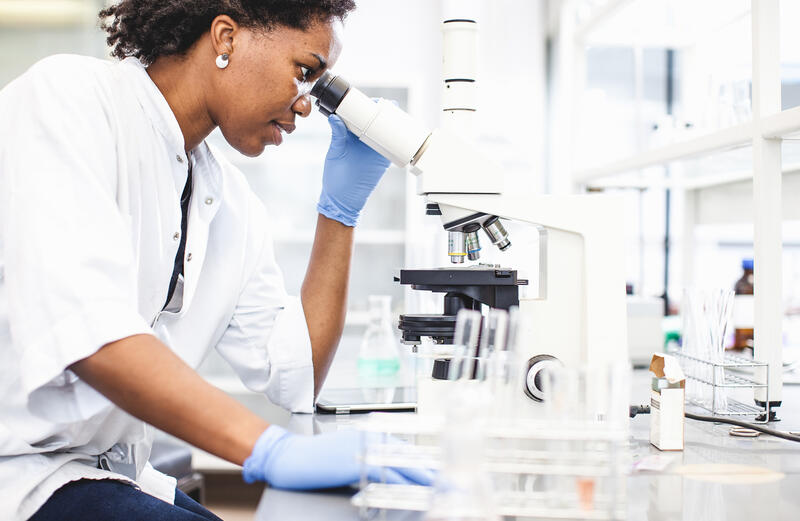Integrating personalised medicine into health research and healthcare in Africa

In a time when healthcare is quickly evolving, the African Union Development Agency-NEPAD (AUDA-NEPAD) has joined the EU-Africa PerMed project. The project was launched in 2021 and aims to integrate African countries into ICPerMed activities as a means to contribute to the implementation of Personalised Medicine (PM). This is being done in the global context, by fostering joint PM projects and programmes between Europe and Africa, and strengthening bilateral EU-AU science, technology and innovation (STI) in health.
Personalised Medicines, which is also known as precision medicine or genetic/genome medicine refers to a medical model using characterisation of individuals’ phenotypes and genotypes to tailor the right therapeutic strategy for the right person at the right time, and/or to determine the predisposition to disease and/or to deliver timely and targeted prevention.
PM is gaining momentum globally. Incorporating African countries into the global personalised medicine research agenda can help to reduce existing health disparities between developed and developing countries, as well as make new tools and technologies available to African countries that have the potential to improve health care efficiency and equity.
The EU-Africa PerMed project held a stakeholders workshop on 9-10 February 2022 to build and strengthen international and national scientific cooperation between scientists, researchers, policy makers, private practitioners, industry, health professional and civil society.
The workshop highlighted not only the importance of empowering patients and identifying people who are at a higher risk of getting ill early, but also tailoring the diagnosis and treatment pathway to work effectively for them.
Speaking during the opening of the workshop, Irene Norstedt, European Commission Director of the “People” Directorate within DG Research and Innovation, stressed the need to prioritise long term cooperation between Europe and Africa in a global health perspective, and for social economic development. “Now more than ever, personalized medicine can help address the challenges of high burden of diseases and the resulting pressure on healthcare systems,” she added.
The four-year EU-Africa PerMed project is implemented by a consortium of 13 partners (six from Europe and seven from Africa) and is organised around seven main Work Packages:
- Coordination and management.
- Mapping the health Research and Innovation (R&I) and policy landscape in Africa for the identification of key stakeholders, initiatives and expertise relevant to PM.
- Cross boarder collaboration and identifications of future actions in PM between Africa and Europe.
- Translating science to policy – Enhancing the dialogue between African countries and Europe in collaboration with ICPerMed and Era PerMed.
- Capacity building in Personalised Medicine.
- Communication and dissemination.
- Ethical issues.
Representing the AUDA-NEPAD, Mr Paul Tanui, Senior Programme Officer – Technical Support for African Medicines Regulatory Harmonization (AMRH) Initiative, spoke on the African Union vision on personalised medicine. He elaborated on how this will enable resource limited countries to start implementing appropriate personalised medicines interventions, drawing on experiences from elsewhere, but adapting to the African context where necessary. He went on to add that, “Poorer resources and infrastructure limitations means that African countries need to overcome greater barriers to implement genomic medicine, but this is by no means an impossible task, challenges can be addressed in a stepwise manner”.
The future of personalised medicine is vast. This workshop provided a platform for stakeholders to exchange knowledge and contribute to the global effort to use data from Research and Development to address the health challenges and aid in preparedness for future pandemics.
